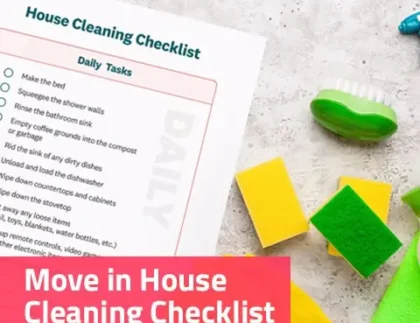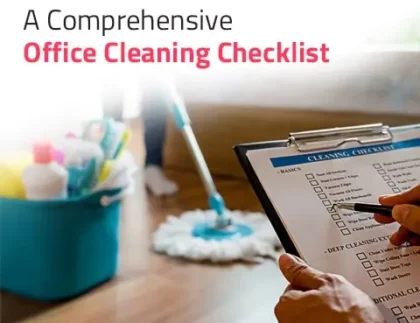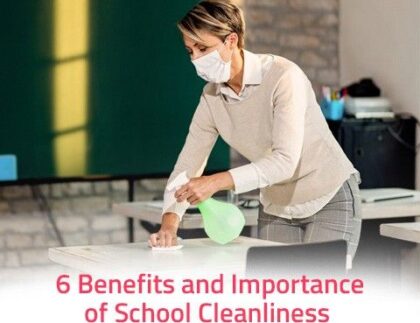
What are cleaning agents?
Cleaning agents in housekeeping refers to liquids, powder etc. that are used to remove the dirt and dust from surfaces. There are several different cleaning supplies available on the market, but they all fall into one of four types.
What are the different types of cleaning agents?
The different types of cleaning agents in housekeeping are detergents, degreasers, abrasives and acids. Each of these different types can be procured, with each being useful for a specific purpose and generally applicable to only a few surfaces.
What are the benefits and risks of using different cleaning agents?
There are several benefits to using different types of cleaning agents. Let us look at the benefits of these individual cleaning agents now:
Detergents
Detergents are water-soluble cleaning agents, which could come in powdered, gel or liquid form. The benefits of using detergents are many. Some of those benefits are:
- They are extremely versatile cleaners, from removing emulsifying oils to dirt and dust.
- They can be used in either powder, gel or liquid forms, and all of them would be equally effective.
- They can be used on most floors of the house and to clean most surfaces.
- Mild detergents, which are used more commonly are environment friendly.
- Mild detergents are a lot less harsh on most skin types.
The risks of using detergents are the following:
- Harsh detergents are not biodegradable and their disposal must be done carefully.
- Harsh detergents are harsh on skin and certain surfaces.
- They can evaporate creating polluting gases at home and surroundings.
- They can be very strong scented and induce nausea.
Degreasers
Degreasers, as the name suggests, are a type of cleaning agents that are used to remove grease, such as oils, fats, and proteins. Grease of this nature is best removed with alkaline solution. If the dirt is sticky and difficult to remove, then more alkalinity is required in the solution. Some of the benefits of degreasers are:
- Mild degreasers remove tough grease and maintain the integrity of the surface also.
- Natural degreasers and water-based degreasers are safe for the environment.
- Some grease can be only removed by oil-based degreasers.
- Natural degreasers that work on most surfaces and dirt can be made at home.
Some of the risks of using degreasers are:
- Synthetic degreasers are not biodegradable.
- Some degreasers can affect the integrity of the surface.
- Degreasers are generally toxic if inhaled or if they come in contact with your skin.
- Certain degreasers can etch metals like aluminium at higher concentrations.
Abrasives
Abrasives are good cleaning agents that are generally chemicals, abrasive materials like feldspar, silica, or substances like baking soda, salt etc. Abrasives are called so because of their varying levels of abrasiveness, which affect the durability of colour and material on the surface. Be sure to read the labels on an abrasive cleaner to ensure it is the right one for your surface. Some of the benefits of abrasives are:
- Very strong and sometimes the only way to get rid of the dirt.
- They are very versatile cleaners and vary depending on the ingredients used.
- They have a clear colour coding indicating the level of abrasiveness. All you got to do is read.
- Can be mixed with disinfectants to assist with removing germs from the surface.
- Abrasives can be reused for the purpose of cleaning.
Some of the risks of using abrasives as cleaning agents in housekeeping are:
- They are so strong they can wear the surface off.
- Though generally harmless when in contact with skin, they can cause issues if inhaled.
- Must be conducted only by a trained person, and the success of the process depends on this.
Acids
Cleaning agents that are acid-based are called acids. They are extremely strong and can damage certain surfaces if improperly used. The benefits of acid cleaners are the following:
- They can brighten metal surfaces much more easily and better than other cleaners.
- They can remove mineral deposits or traces of oxidation from the metal surface.
- They can be used for etching metal surfaces.
- Acids like citric acid and glycolic acid are biodegradable.
- They are generally non-volatile and there is no risk of inhalation.
The risk of using acid cleaners are the following:
- They must be stored in glass containers as they can damage plastic and other containers.
- They can damage certain metal surfaces if not used with care.
- Some acid cleaners are not biodegradable.
- They will damage skin and organic surfaces on contact.
How do you choose the right type of cleaning agent for your needs?
When picking the cleaning agent that is right for your needs, you must answer the following questions:
1. What kind of surface will you be using it for?
Wooden surfaces are to be cleaned with very mild detergents. Never use abrasives, acids or degreasers on them. Metal surfaces can be cleaned with degreasers and detergents. Try not to use acids or abrasives on them. Granite surfaces can be cleaned with abrasives or degreasers.
2. What is the kind of dirt or sludge you are trying to remove?
Use a degreaser for heavy grease, especially in the kitchen. Use mild detergents for dirt and dust and other soils. Is it something that is deeply stuck in the surface? Then you may need to use an abrasive.
3. Will children and pets be using the area?
If this is the case, then you must use only natural detergents or abrasives to clean the area. These will generally not be toxic. Once the cleaning is done, be sure to leave the area spotless and free of any cleaning agents.
What are some best practices for using different types of cleaning agents?
Cleaning agents must be used with great care, so as to not affect anyone at home or at the place of work. The following are some of the best practices when using different types of cleaning agents in housekeeping:
- Do not mix cleaning chemicals together.
- Read the labels of cleaning chemicals carefully before using them.
- Wear gloves while cleaning as most cleaning agents are harmful.
- Wear a mask and googles, especially if you are working with acid cleaners or harsh detergents.
- Have a safety kit on hand to use in case of exposure.
- Dilute cleaning chemicals before using them.
How do you store different types of cleaning agents safely?
Here are a few tips to store different types of cleaning agents safely. You may already be doing a few of these things. There might be a few tips that are fairly new as well.
- Store cleaning agents away from sunlight in a cool and dry place. If stored at high temperatures, they may react or in the case of acids, become unsafe to handle as well.
- Make sure that they are stored in the best containers possible. In the case of detergents, it may be safe to use plastic containers but you need glass containers to store acids.
- Keep cleaning agents that may react away from each other. Only a cleaning professional would be aware of such a nuance.
- Keep hazardous cleaning agents like strong degreasers and acid cleaners away from the reach of children.
- Store away from any HVAC intake vents to prevent any fumes, if released, from spreading throughout the home.
How do you clean different surfaces with different types of cleaning agents?
When cleaning different surfaces, make sure you are using the right surface cleaner. As we mentioned earlier wood does not require a strong cleaning agent, but metal and hard floor will need stronger agents. Do not overuse any cleaning agent in housekeeping. Better to underuse than overuse a cleaning agent. If you are in doubt, please make use of a cleaning service such as CleanPro.
How do you ensure that you’re using the right type of cleaning agent for each task?
There is no assurance that you are using the absolute best cleaning agent for a service. The only way to be sure is to use a cleaning service. They are trained professionals and can easily distinguish between effective and non-effective cleaning agents for a given scenario. When you are in doubt, always use an expert cleaning service.
Closing Words
For a great home cleaning experience, it is clear that you need the right cleaning agent. You also need to store it carefully, use it well and with the right precautions and dispose of it in the correct manner after use. These are not things you may know for every detergent, abrasive or acid on the market. How do you ensure that your home cleaning is in the right hands? You can follow the tips we gave in this article or you could opt for a great cleaning service such as CleanPro.
FAQs
1. What are some common ingredients in cleaning agents?
There are no common ingredients across cleaning agents. Though if you are preparing a natural cleaning agent then both lemons and vinegar are quite popular. Each type of cleaning will have certain ingredients that are present in most cleaning agents of that type. For instance, while detergents have volatile organic compounds (VOCs), acid cleaners don’t. The only volatile acid is carbonic acid.
2. How do you use different types of cleaning agents safely and effectively?
Here are some general tips to use cleaning agents safely. When using cleaning agents in housekeeping, make sure you cover your face with a mask and wear goggles and gloves to minimize the risk of contact to as little as possible. Be very careful with acids and strong degreasers as they can cause damage on contact. It is always better to use certain cleaning agents under the supervision of a cleaning professional only.
3. How do you dispose of different types of cleaning agents safely?
Some cleaning agents such as natural degreasers and detergents can be disposed of safely as they are readily biodegradable. Even if they are, make sure that they are disposed of in their original packaging. Also make sure you keep children and pets away from the waste.
4. What are some alternatives to traditional cleaning agents?
Alternatives to traditional cleaning agents that are easily accessible are vinegar, lemon juice, baking soda etc. There are also certain oils that can be used for cleaning such as eucalyptus oil, lavender oil, cinnamon oil and peppermint oil.
5. What are some tips for maintaining a clean and healthy home using different types of cleaning agents?
We already discussed the best practice for using different cleaning agents when you are trying to maintain a clean home. Some other tips you could follow are: First, use the right form of the detergent for the right cleaning practice. This depends on the surface you are trying to clean and the extent of the cleaning required. Second, do not use a natural cleaner when you need to do a thorough job and for dirt that has settled in hard. Third, do not go by your gut instincts. Have faith in science.











